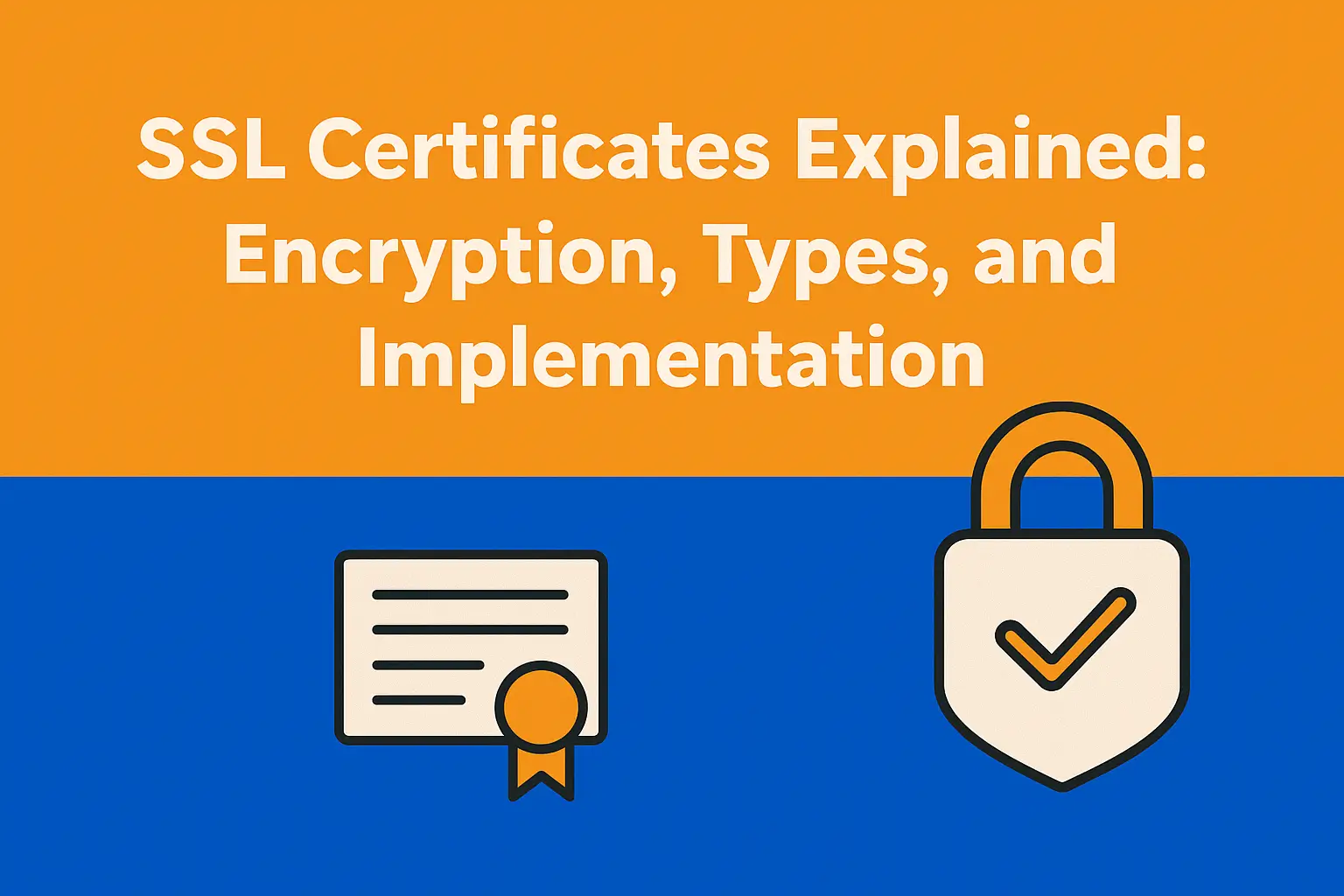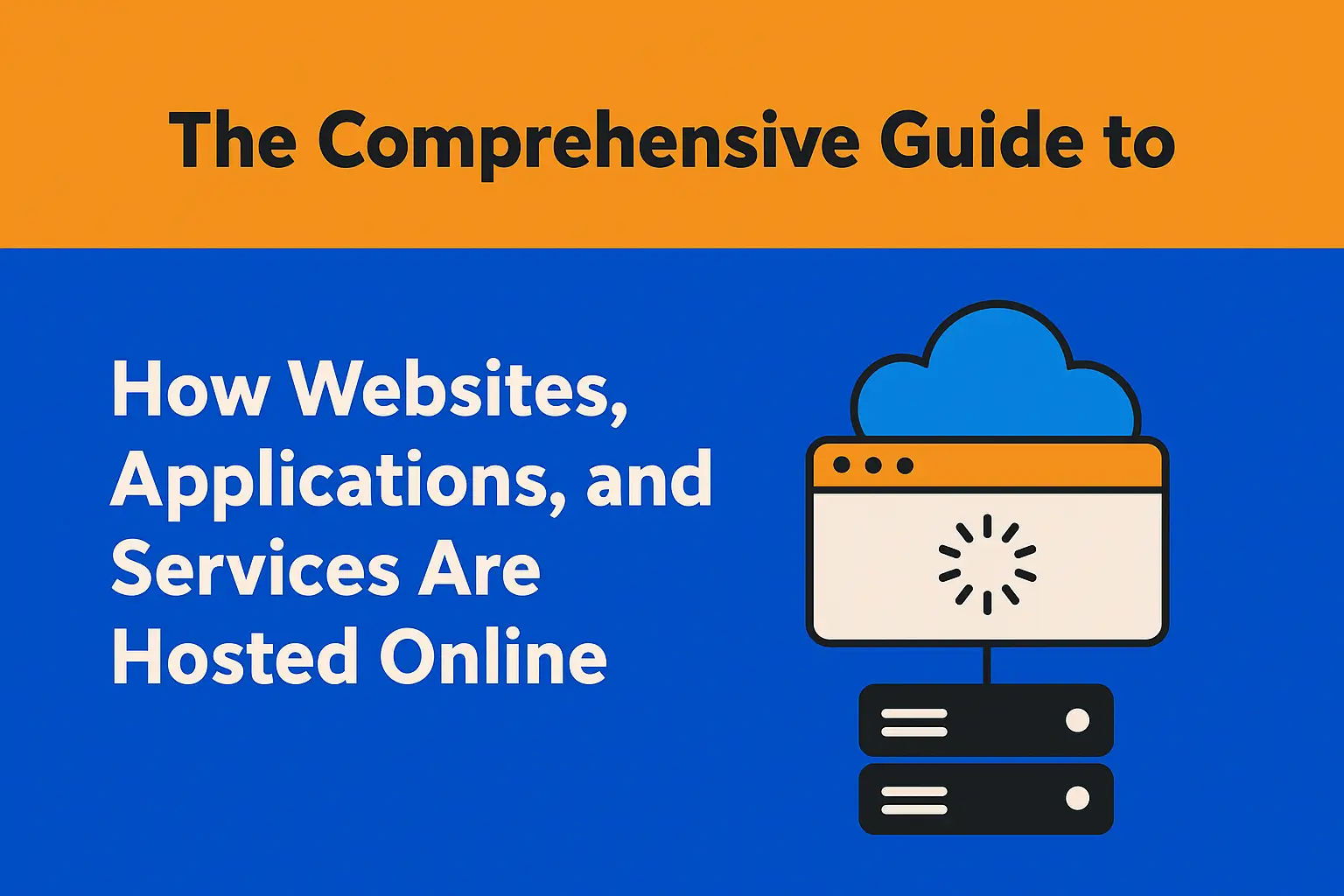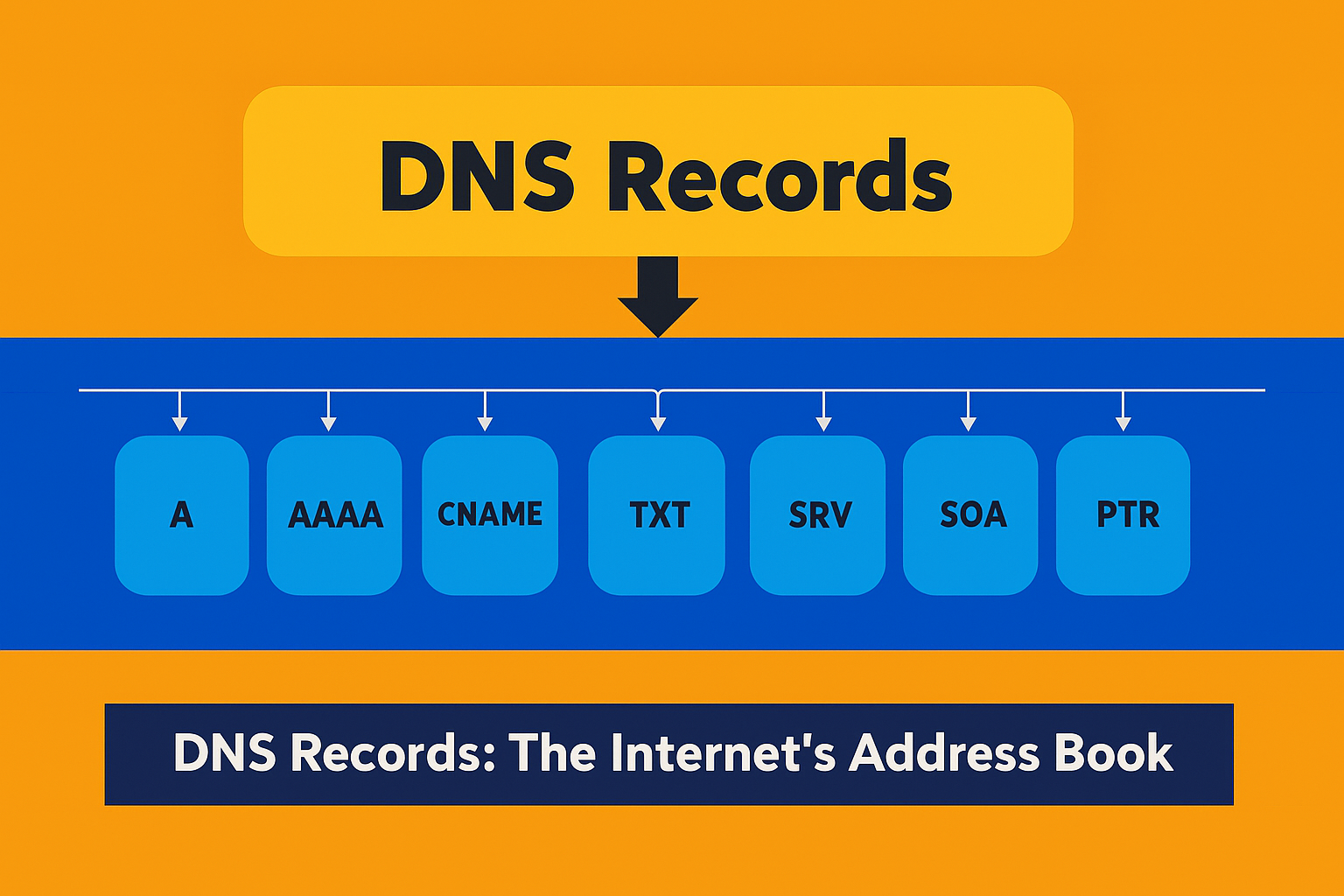
Introduction to Domain Names
A domain name serves as a fundamental element for establishing a credible online presence. It acts as the digital address of your website, enabling users to locate and remember your site easily. Essentially, domain names function as the online identity of a website, playing a pivotal role in branding, marketing, and overall visibility on the internet.
In the context of website identity, a domain name often represents the first impression visitors may have of your site. It is crucial as it can significantly influence their perception of your business or personal brand. A well-chosen domain name aids in creating a professional image and builds trust with your audience, encouraging them to explore the content and services you offer.
From a branding perspective, a domain name is much more than just an address; it symbolizes your brand’s message and mission. It should ideally reflect the nature of your website, making it easier for potential visitors to understand what they can expect upon visiting. Consistency between your domain name and brand name reinforces brand recognition and ensures that your website remains memorable.
SEO (Search Engine Optimization) considerations further underline the importance of selecting an appropriate domain name. A relevant and keyword-rich domain name can enhance your site’s ranking on search engine results pages (SERPs), drawing more organic traffic. While search engines prioritize high-quality content and user experience, domain names integrated with strategic keywords can offer an initial advantage in improving your site’s visibility.
In summary, the significance of a well-chosen domain name cannot be overstated. It is instrumental in attracting visitors, establishing trust, and ensuring your website makes a lasting impression. As you develop your free website, careful consideration of your domain name lays the groundwork for effective branding and enhanced online presence.
Importance of a Memorable and Catchy Domain
Choosing a memorable and catchy domain name is a crucial step in establishing an online presence. A domain name is more than just an address; it serves as the first impression visitors have of your website. An effective domain name can significantly contribute to driving traffic, enhancing marketing efforts, and ensuring customer recall.
A memorable domain name sticks in people’s minds, making it easier for them to return to your site or recommend it to others. It acts as a cornerstone of your brand identity. Consider names that are short, simple, and easy to pronounce. For instance, companies like Google, Facebook, and Twitter have chosen domain names that are succinct and instantly recognizable. The ease with which these names can be recollected has contributed enormously to their success.
A catchy domain name can also bolster your marketing campaigns. In digital marketing, the effectiveness of campaigns often hinges on the click-through rate (CTR) of links shared across various platforms. A domain name that is engaging and thought-provoking can entice users to click on it. Websites such as LinkedIn and Instagram have leveraged their appealing domain names to elicit user curiosity and engage their audience effectively.
Moreover, customer recall plays a pivotal role in repeat business. In a digital landscape that is saturated with information, standing out is imperative. An engaging domain name ensures that visitors remember your site after their initial visit. This is particularly important for businesses that rely on returning customers. Domains like Shopify and Netflix reflect this principle; their names are not only unique but also easy to remember, which aids in cultivating a loyal customer base.
In summary, the value of a memorable and catchy domain name cannot be overstated. It drives traffic, elevates marketing efforts, and fosters customer recall, all of which are essential for establishing a strong online presence.
Keep It Short and Simple
Choosing a short and simple domain name offers several compelling advantages, benefiting both the website owner and the users. A brief and straightforward domain is easier to remember, reducing the cognitive load on visitors. When users can easily recall your domain, they are more likely to return, thereby increasing repeat traffic and engagement.
Short domain names also minimize the risk of typographical errors. The fewer characters there are, the less chance there is for users to make mistakes while typing the URL. This is particularly beneficial for mobile device users, who often type on smaller, more error-prone keyboards. A domain name that is succinct and easy to spell ensures a smoother user experience, improving accessibility and convenience.
Moreover, a simple domain name facilitates word-of-mouth marketing. If your domain is brief and memorable, users are more likely to share it with friends and family. This kind of organic sharing can enhance your website’s visibility and reach, driving more traffic without incurring additional marketing costs.
Several examples illustrate the effectiveness of short domains. Websites like Google.com and Twitter.com are prime instances where brevity has contributed to brand recognition and user recall. These names are not only concise but also reflect the essence of what the websites offer, making them even more memorable.
In essence, keeping a domain name short and simple brings multiple advantages. It enhances user experience, reduces the likelihood of errors, and aids in memorability and sharing. When selecting a domain for your free website, prioritize brevity and simplicity to maximize these benefits.
Use Relevant Keywords
Incorporating relevant keywords into your domain name is a strategic move that can significantly enhance your website’s SEO performance. Keywords that are directly related to your content help search engines understand what your site is about, making it more likely to appear in search results when users query those terms. This naturally leads to increased visibility and traffic, which are crucial for establishing an online presence.
When considering keywords for your domain name, focus on terms that accurately describe your business or the content of your website. These can include industry-specific terms, product names, service types, or even geographical locations. For instance, if you run a photography business in New York, a domain name incorporating keywords like “NYCPhotography” or “NewYorkShoots” might be advantageous.
Blending keywords into your domain name should be done thoughtfully. Aim for a balance between relevance and readability, avoiding the pitfalls of keyword stuffing. A natural-sounding, concise, and clear domain name will always perform better than one overloaded with keywords, which can appear spammy and detract from user trust. For example, “BestNYCPhotography” is more appealing and professional compared to “BestPhotographyNYCNewYorkCity.”
There are several tools available that can assist you in selecting the right keywords for your domain name. Google’s Keyword Planner is a valuable resource for identifying popular search terms related to your niche. Similarly, tools like SEMrush and Ahrefs can provide insights into keyword popularity and competitive analysis. Leveraging these tools can give you a clearer understanding of which keywords are most beneficial to incorporate into your domain name.
Incorporating relevant keywords into your domain name effectively can help position your website better in search engine rankings, ultimately driving organic traffic and contributing to your site’s success. Careful keyword selection, combined with a focus on readability and professionalism, will yield the best results.
Avoid Numbers and Hyphens
When selecting a domain name for your website, it is crucial to avoid the inclusion of numbers and hyphens. These characters can significantly hinder the user experience and lead to potential mistakes when visitors attempt to type your domain name into a browser. Numbers, for instance, often cause confusion. Users may not be sure whether the number should be written as a numeral (e.g., “3”) or spelled out (e.g., “three”). This ambiguity can result in traffic loss, as potential visitors may end up on incorrect or nonexistent websites.
Similarly, hyphens can complicate the domain name for users. When spoken aloud, hyphens aren’t intuitively clear, and they can be easily forgotten when typed. A domain name with hyphens can appear less professional and harder to remember. Additionally, the presence of hyphens can make your domain name look spammy or lower its credibility, which is particularly detrimental to building a trustworthy online presence.
To create a unique and clear domain name without the use of numbers and hyphens, it is advisable to focus on simple, memorable words. Combining two meaningful words can often result in an effective domain name that remains easy to recall and type. For example, instead of “top-10deals.com” or “teachers-4u.com,” consider alternatives like “TopDeals.com” or “BestTeachers.com.” These alternatives are straightforward and eliminate the chances of mistyping.
Another strategy is to leverage creative permutations or compound words relevant to your business or blog. Using brandable words – terms that are unique to your brand and not common in everyday language – can help you stand out while maintaining clarity. Tools like domain name generators can assist in this process by providing a variety of options that fit your specified criteria.
By steering clear of numbers and hyphens, you ensure that your domain name remains clear, professional, and user-friendly, significantly enhancing the overall user experience and maximizing traffic to your website.
Choose the Right Domain Extension
Selecting the optimal domain extension is a crucial aspect of crafting a successful online presence. Domain extensions, also known as top-level domains (TLDs), come in various forms and serve different purposes, depending on the nature of your site and the audience you wish to attract.
The most popular and widely recognized domain extension is .com. It stands for ‘commercial’ and is often the first choice because of its familiarity and universal acceptance. Visitors tend to trust .com sites more due to their prevalent use. If your website is intended for business or commercial purposes, a .com extension can lend additional credibility and accessibility.
Another common extension is .net, short for ‘network.’ Initially designed for network-based technologies and companies, it has since become a viable alternative for those who find their desired .com domain already taken. While not as universally preferred as .com, .net still carries a professional connotation.
For organizations, especially non-profits, the .org extension is a favored choice. It signifies trustworthiness and is frequently associated with educational institutions, open-source projects, and non-profit entities. If your website aims to foster a sense of community or promote a cause, .org might be the fitting choice.
In recent years, a plethora of new and trending domain extensions have emerged, such as .co (often used for company or corporation), .io (popular among tech startups and the gaming community, originally denoting British Indian Ocean Territory), and .biz (tailored for business use). Selecting these newer extensions can help your website stand out and appear modern, especially if the traditional TLDs you prefer are unavailable.
When choosing a domain extension, it is essential to consider your website’s purpose and the expectations of your target audience. A fitting extension will enhance your site’s credibility, improve user trust, and help you strategically brand your online identity.
Check Availability and Trademark Issues
When embarking on the journey to select the perfect domain name for your free website, it’s crucial to verify its availability. This process starts by accessing domain registration services such as GoDaddy, Namecheap, or Google Domains. These platforms offer search functionalities where you can input your desired domain name to see if it is available for registration. It’s typical to come across scenarios where your first choice is already taken, necessitating adjustments or an altogether different name.
Equally important is ensuring that your chosen domain name does not infringe upon any trademarks. Utilizing tools like the United States Patent and Trademark Office (USPTO) database or international equivalents can help you verify that your preferred domain name is not protected by trademarks. This diligence not only shields you from potential legal issues but also maintains the credibility of your brand.
If your desired domain name is unavailable, don’t be disheartened. There are effective strategies to find a suitable alternative. Consider incorporating variations such as adding relevant keywords, prefixes, or suffixes. These adjustments can often yield a domain that is still strongly aligned with your brand or niche. Additionally, exploring different domain extensions, like .net, .org, or country-specific TLDs, can provide you with usable options when the .com version is claimed.
Moreover, for cases where the domain name is registered but not actively used, contacting the current owner to negotiate a purchase might be a viable option. However, this approach may require a budget as domain owners often demand a premium for sought-after names.
By meticulously checking domain availability and trademark issues, you lay a solid foundation for establishing a distinct and legally sound online presence. This due diligence ensures that your new website can stand out in the digital landscape without complications, ultimately setting you up for long-term success.
Finalize and Register Your Domain
Once you’ve chosen the perfect domain name for your free website, the next crucial step is to finalize and register it. This process ensues via domain registration platforms that cater to diverse needs, offering a range of features for users to take advantage of. Some popular domain registrars include GoDaddy, Namecheap, and Google Domains, each with unique benefits such as user-friendly interfaces, competitive pricing, and additional services.
When selecting a domain registrar, consider aspects like customer support, pricing, and renewal policies. Start by visiting the registrar’s website and search for the availability of your chosen domain name. Should your preferred domain be available, proceed with adding it to your cart. During this step, you might encounter various promotions or add-ons that can enhance the functionality and security of your domain.
One vital aspect of domain registration is securing your domain against potential threats and maintaining your privacy. WHOIS protection, a service provided by most registrars, ensures that your personal information is concealed from public databases. This added layer of security keeps your contact details private and reduces the risk of receiving spam or malicious inquiries.
It’s also essential to set up auto-renewal for your domain. This feature ensures that your domain registration is automatically renewed before it expires, preventing any risk of losing your domain. Most registrars offer options for one-year, multi-year, or even ten-year renewals, giving you the flexibility to choose a plan that suits your needs and budget.
Lastly, keep an eye on your registrar’s renewal fees and policies, as these can sometimes differ from the initial registration cost. Staying informed about these details will help you manage long-term expenses effectively. By following these steps, you’ll secure your domain, protect your privacy, and ensure your free website remains online for years to come.





0 Comments